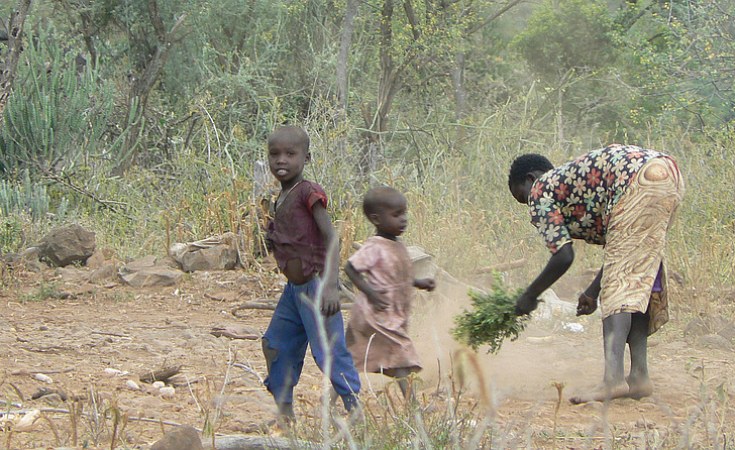Nairobi — Culture makes up an important aspect of any nation, especially one that has different communities, such as Kenya. Culture fosters nationhood, instils a strong sense of identity and creates national pride.
Yet there are many Kenyans who are not fully aware of the history and development of most Kenyan societies. Some of them still uphold stereotypes that were painted by the colonial administration.
One community about whom little is known is the Endorois, living on the floor of the great Rift Valley around the Lake Bogoria National Reserve, which is located in Baringo and Koibatek districts.
The Endorois culture, though still very rich, has undergone a major transformation over time. The interaction of Endorois with the communities around Lake Bogoria and Baringo basin has greatly influenced them in many aspects.
According to an Endorois elder, William N'gasia, it is difficult to tell an Endorois from a Tugen because their dialects are almost similar. However, N'gasia says that the Endorois are an amalgamation of Tugen, Ogiek and Njemps, a Maasai clan.
The Tugen, whose influence is more pronounced in the Endorois culture, consists of two clans - Arror, who live in northern Baringo and Samor in southern Baringo. Based on oral traditions and linguistic evidence, the Endorois can be argued to be the third Tugen clan.
Some Maasai people who also influenced the cultural development of the Endorois are said to be those who took refuge within the community during the Maasai civil wars of the 19th century.
The elder also says Endorois oral traditions assert that their ancestors came from the sky and settled in Mochongoi Forest before migrating to the present Lake Bogoria basin.
According to historians, the Endorois form part of the wider Kalenjin community, the highland Nilotes, as they speak the Kalenjin language. However, the Endorois origins, migration and history are scanty and open to research and further study.
The Endorois have no centralised political organisation; their "government" is based on age-sets in which men were elevated from childhood to adulthood in stages marked by elaborate initiations. Elders held in high esteem made important decisions on everyday matters. Women were excluded from important discussions and young men abided by the decisions of the elders, who did most of the talking and decision-making during meetings.
Moreover, among the elders, attention and respect were accorded to those with knowledge of customs. However, the elders did not have a monopoly of roles. Naturally, it was the younger and more agile men who undertook the important day-to-day activities such as herding livestock, defence and attacks against enemies.
The elders' responsibility was to exhort diligence and bravery and to approve actions to be taken, whether good or bad. N'gasia adds that the Endorois system of government derived from the wisdom of the elders, but was enacted by the warrior age-set in power.
The age-set system among the Endorois is very important. Any particular time in Endorois history, whether present, recent or long past, is remembered as "the time of such-and-such an age-set".
Also, all sorts of events - from wars and cattle raids to victories and defeats, droughts and epidemics - are recorded as having occurred in the time of a particular age-set.
N'gasia says the age-sets included Chuma, Sawe, Korongoro, Kipkoiimet, Kiplelach, Kimnyikeu and Nyongi. Occasionally, the community would prematurely close the period of an unruly or disgraced age-set.
Wealth, usually in the form of livestock, beehives, wives and children, is valued and enhances the status of the owner (an elder). This is because a man rich in cattle will often have many dependants, thus be influential in the community.
Endorois education spells out the community's traditions, obligations, social conduct, environmental management, patriotism, bravery, wealth, entertainment and intellectual development. Music, dance and recreation comprise elaborate songs, dances and rites to accompany ceremonies like birth circumcision, marriage and burial.
Elder Paul Kimaru says the Endorois are proud of their traditional songs, which have rich, unifying and educative values. "During traditional dances, male dancers smear themselves with red soil and wear a piece of cloth and beads around the waist. They wield spears, swords, clubs and fly whisks. The women wear skins, adorn their ears with beads and carry special sticks."
The songs and dances of the Endorois community show that leisure is highly regarded by the community despite changed economic and social perspectives brought about by Christianity and education.
During circumcision, the Endorois, like the Nandi, take their initiates through a lengthy and rigorous process. According to another elder, Kiprono Lobolei, the Endorois might have borrowed circumcision rites from the Nandi or the Nkishu Maasai who were displaced from the Uasin Gishu plateau by Nandi warriors.
In marriage, Lobolei points out that brideprice is paid in the form of livestock. Divorce cases are very rare because the community has a method of resolving matters that threaten to end in divorce.
The community's religious beliefs indicate that a supreme being, named Cheptailel or Asis, controls everything that occurs in the society. According to them, thunder and lightening are forms of punishment to wrong-doers such as murderers, thieves and fornicators. Sacrifices are offered to the supreme being to end disasters such epidemics and droughts.


